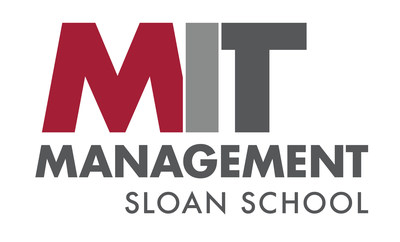Subject: SVY
Academic study reveals new evidence of Facebook's negative impact on the mental health of college students
Researchers created control group by comparing colleges that had access to the platform to colleges that did not during the first two years of its existence
CAMBRIDGE, Mass., Sept. 27, 2022 /PRNewswire/ -- A new study led by researchers from Tel Aviv University, MIT Sloan School of Management and Bocconi University reveals new findings about the negative impact of Facebook on the mental health of American college students. The study focuses on Facebook's first two-and-a-half years (2004-2006), when the new social network was gradually spreading through academic institutions, and it was still possible to detect its impact by comparing colleges that had access to the platform to colleges that did not. The findings found a rise in the number of students who had access to Facebook reporting severe depression and anxiety (7% and 20% respectively).
The study was led by Dr. Roee Levy of the School of Economics at Tel Aviv University, Prof. Alexey Makarin of MIT Sloan School of Management, and Prof. Luca Braghieri of Bocconi University. The paper is forthcoming in the academic journal American Economic Review.
"Over the last fifteen years, the mental health trends of adolescents and young adults in the United States have worsened considerably," said Prof. Braghieri. "Since such worsening in trends coincided with the rise of social media, it seemed plausible to speculate that the two phenomena might be related."
The study goes back to the advent of Facebook at Harvard University in 2004, when it was the world's first social network. Facebook was initially accessible only to Harvard students who had a Harvard email address. Quickly spreading to other colleges in and outside the US, the network was finally made available to the general public in the US and beyond in September 2006.
The researchers studied Facebook's gradual expansion during those first two-and-a-half years to compare the mental health of students in colleges that had access to Facebook with that of students in colleges that did not have access to the platform at that time. Their methodology also took into account any differences in mental health over time or across colleges that were not related to Facebook. This approach enabled conditions similar to those of a 'natural experiment' - clearly impossible today now that billions of people use many different social networks.
Prof. Makarin said, "Many studies have found a correlation between the use of social media and various symptoms related to mental health. However, so far, it has been challenging to ascertain whether social media was actually the cause of poor mental health. In this study, by applying a novel research method, we were able to establish this causality."
The study combined information from two different datasets: the specific dates on which Facebook was introduced at 775 American colleges, and the National College Health Assessment (NCHA), a survey conducted periodically at American colleges.
The researchers built an index based on 15 relevant questions in the NCHA, in which students were asked about their mental health in the past year. They found a statistically significant worsening in mental health symptoms, especially depression and anxiety, after the arrival of Facebook:
- a rise of 7% in the number of students who had suffered, at least once during the preceding year, from depression so severe that it was difficult for them to function;
- a rise of 20% in those who reported anxiety disorders;
- an increase in the percentage of students expected to experience moderate to severe depression - from 25% to 27%;
- a rise in the percentage of students who had experienced impairment to their academic performance due to depression or anxiety - from 13% to 16%.
Moreover, the impact of Facebook on mental health was measured at 25% of the impact of losing a job, and 85% of the gap between the mental states of students with and without financial debt ? with loss of employment known of employment and debt known to strongly affect mental health.
Dr. Levy said, "When studying the potential mechanisms, we hypothesized that unfavorable social comparisons could explain the effects we found, and that students more susceptible to such comparisons were more likely to suffer negative effects. To test this interpretation, we looked at more data from the NCHA. We found, for example, a greater negative impact on the mental health of students who lived off-campus and were consequently less involved in social activities, and a greater negative impact on students with credit card debts who saw their supposedly wealthier peers on the network."
"We also found evidence that Facebook had changed students' beliefs about their peers: more students believed that others consumed more alcohol, even though alcohol consumption had not changed significantly. We conclude that even today, despite familiarity with the social networks and their impact, many users continue to envy their online friends and struggle to distinguish between the image on the screen and real life."
For further information, contact:
Casey Bayer or Patricia Favreau
Director of Media Relations Associate Director of Media Relations
(617) 253-0576 617-253-3492
[email protected] [email protected]
SOURCE MIT Sloan School of Management
These press releases may also interest you
|
News published on and distributed by:





